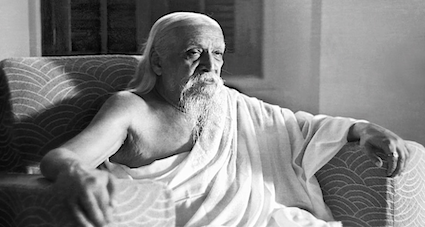A short film on Sri Aurobindo Ghose would be screened in India’s missions abroad by the Ministry of External Affairs on the occasion of India’s 75th Independence Day on Monday.
A short film titled ‘Sri Aurobindo: The Beginning of Spiritual Journey’ will thus be screened virtually on the occasion of Independence Day. It will also be screened at various schools and colleges over the next year.
The film features actor Vikrant Chauhan in the lead role. It has been directed by Suraj Kumar while the screenplay has been written by Manish Kumar Pran.
Reportedly, ‘Sri Aurobindo: The Beginning of Spiritual Journey’ is based on the 1-year time (1908-1909) that the freedom fighter spent behind bars at the Alipore Jail in Kolkata. Sri Aurobindo Ghose was arrested on May 5, 1908 after being falsely accused of ‘waging war’ against the British government.
He served one year in Alipore Jail before being freed on May 6, 1909. Director Suraj Kumar informed, “While Sri Aurbindo Ghose was lodged in jail, his spiritual transformation started just after 2-3 days of prison life.”
He added, “My short film ‘Sri Aurobindo: The Beginning of Spiritual Journey’ documents his beginning of spiritual journey in Alipore jail…The idea of making the short cropped up when one of my IIMC friends and prison reformer Dr. Vartika Nanda discussed it with me, back in early 2021.”
“Subsequently, I visited the National Library of India in Kolkata to document and record the news articles published related to Sri Aurobindo’s imprisonment,” Kumar emphasised. The film essentially conveys the journey of Sri Aurobindo from a freedom fighter to a philospher.
The trailer of the short film was posted on the official Youtube channel of ‘Nalanda TV’ on on August 4, 2022.
Born on August 15, 1872, Sri Aurobindo Ghosh was one of the first few leaders to float the idea of complete independence from the British Raj. He proposed the concept of ‘Purna Swaraj’, 20 years before the Indian National Congress.
He advocated use of Swadeshi products, non-cooperation and passive resistance to achieve the goal. After being a part of the Independence movement between 1902 to 1910, he fled to the French colony of Puducherry to escape the British regime.
Sri Aurobindo set up an ashram and worked for the development of ‘internal Yoga.’ He authored several works including The Life Divine, Essays on the Gita, Collected Poems and Plays, The Synthesis of Yoga, The Human Cycle, The Ideal of Human Unity, Savitri: A Legend and a Symbol, and On the Veda.
Economic policy expert Gautam Chikermane, who authored the book ‘Reading Sri Aurobindo’ told Tribune India, “He remains brutally cancelled by Indian academics, Indian education and Indian mainstream media.
“Despite being an important person in India’s political life and philosophical and spiritual traditions, and producing some cutting-edge work in literature, drama, poetry, analysis of world affairs, psychology, yoga and much more, he has remained largely undiscovered,” he further added.
The philosopher and spiritual leader passed away on December 5, 1950.


